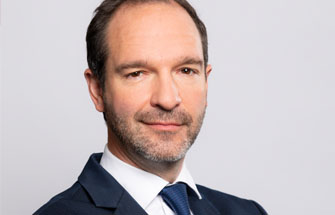The health crisis has reinforced the deep awareness of the impact of human activities on the environment. The war in Ukraine has undeniably accelerated this trend. It is one of those historical events that will reshape geopolitics, societies and markets. This awareness is unanimous and reinforces the need to ensure financial profitability while having a measurable and positive social and environmental impact.
While the integration of ESG practices was seen as optional a few years ago, it is increasingly becoming a mandatory criterion for investors. Indeed, between 2019 and 2021, the percentage of institutional investors (often far ahead of the curve in terms of regulatory impacts) integrating ESG and impact concepts into their practices increased from 61% to 72%.
The same trend can be observed among fund selectors: 60% of the funds in the European infrastructure plan CEF "Connecting Europe Facility" will be dedicated to projects contributing to the EU's climate goals, while 15% of the funds in the energy pillar will go to cross-border renewable energy projects.
On the environment, in the aftermath of Russia's invasion of Ukraine, Ursula Von der Leyen announced: "We need to act now in order to mitigate the impact of rising energy prices, diversify our gas supply for next winter and accelerate the energy transition”. The objectives are still unclear but the roadmap is taking shape, massive investments will be needed.
Finance has a major role in resource allocation in the economy. Traditional finance directs savings towards the most profitable projects, without taking into account the environmental aspects of the investments made. Green finance, on the other hand, finances projects that do not harm the environment or allow for the development of a sustainable economy. In most countries that have implemented stimulus packages, the energy transition is at the heart of the investments. In Europe, the EU's long-term budget, combined with NextGenerationEU, will be the largest stimulus package ever funded in Europe.
We believe 2022 is a turning point, driven by a greater urgency to address environmental and social challenges. We should see changes in investment in sustainability and a shift from aspiration to action that will have many positive effects. The quantification of impact will lead to a greater focus on corporate engagement. Greater emphasis will also need to be placed on innovation as the catalyst for stimulating impact investments to build the right infrastructure.
We are convinced that the inclusion of extra-financial criteria is no longer an option. The alignment of public and private investment regulation is expected to increase further in the coming years. The reconciliation of Green Finance and traditional finance is underway and we are the frontline players to meet this requirement for future generations and for our clients.






